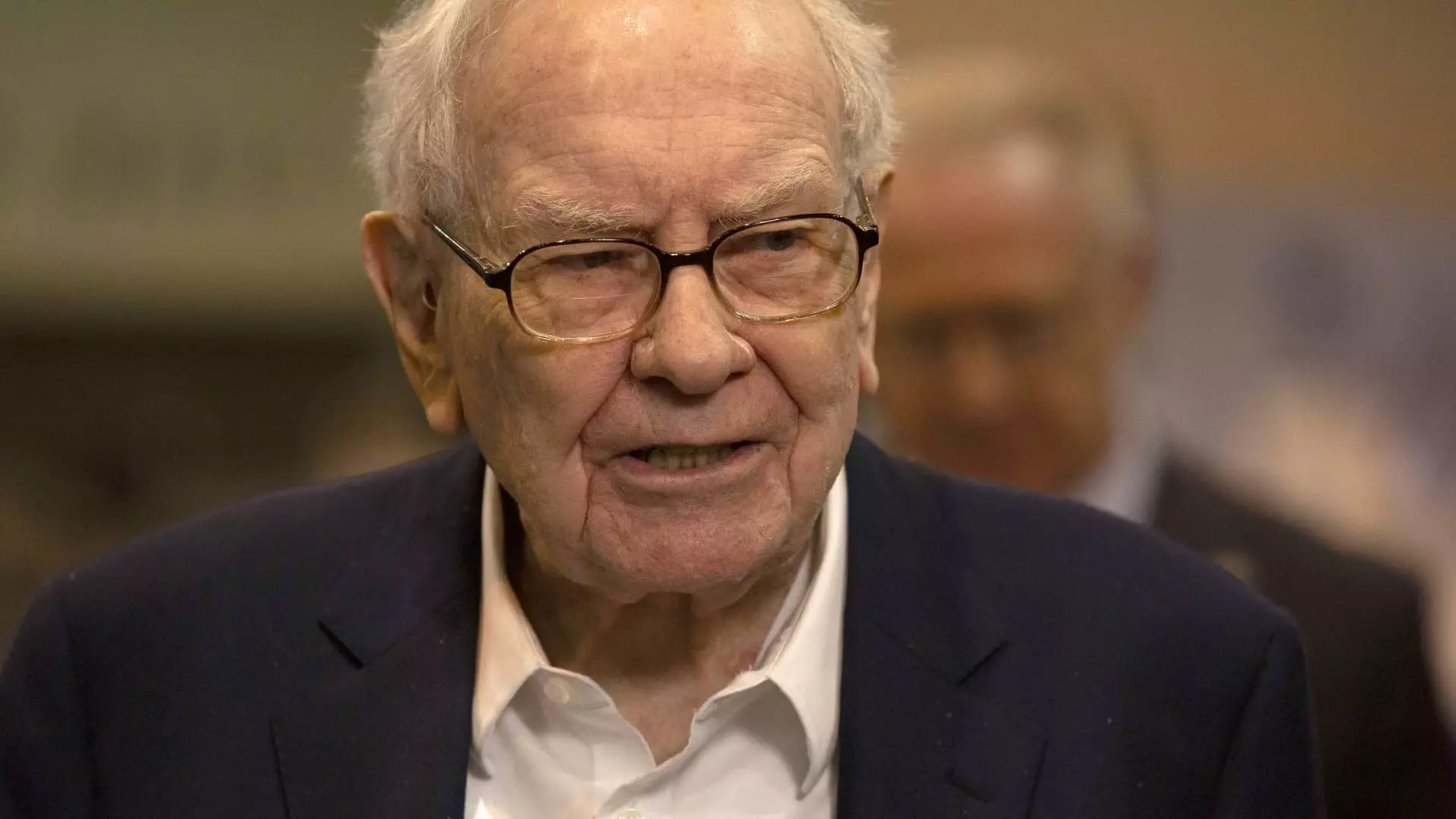Berkshire Hathaway, a conglomerate known for its diverse portfolio and the strategic acumen of its CEO, Warren Buffett, achieved a significant milestone during the third quarter of the year. With cash reserves soaring to a staggering $325.2 billion—up from a previous $276.9 billion—it’s imperative to scrutinize the implications of this financial strategy and the broader market environment in which it operates. This article aims to dissect the motivations behind Buffett’s aggressive stock-selling strategy while simultaneously analyzing the company’s financial health in a changing economic landscape.
Berkshire Hathaway’s burgeoning cash reserves raise important questions about Buffett’s outlook on both his investments and the stock market at large. Over the past few months, the company has unloaded substantial holdings in prominent stocks. Notably, the sale of approximately 25% of its stake in Apple marks a continuation of a trend—this being the fourth consecutive quarter in which the conglomerate has retreated from its once-beloved position in the tech giant. Similarly, Berkshire’s long-standing investment in Bank of America has seen the company extracting more than $10 billion since mid-July.
What could justify such a sizeable liquidation of assets? One possible explanation is Buffett’s cautious stance towards the current financial climate, where inflationary pressures and fluctuating interest rates portray a convoluted picture of economic stability. With concerns mounting over potential ballooning deficits and the impact of rising capital gains tax rates, Buffett may be positioning Berkshire to weather possible downturns or adjust to new policy landscapes.
Buffett’s decision to refrain from repurchasing Berkshire shares during this cash accumulation period raises eyebrows. Traditionally, stock buybacks have been a significant part of Berkshire’s strategy, allowing the firm to reinvest in itself when market prices are deemed undervalued. However, the company only repurchased $345 million worth of its own stock in the second quarter—a stark decline from the $2 billion bought back in each of the two preceding quarters. This restraint sends a clear signal that Berkshire’s management is adopting a more conservative, wait-and-see approach amid market volatility.
The underlying philosophy, as articulated by Berkshire itself, points to a belief that buybacks should only occur when the share price is below the company’s intrinsic value. With Berkshire’s stock market performance this year outpacing the broader S&P 500, hitting a remarkable 25% increase as opposed to the S&P’s 20.1%, the company may simply view its shares as no longer undervalued, further reinforcing the rationale for minimizing repurchases.
While Berkshire’s cash pile continues to grow, the company’s operating earnings tell a different story. In the third quarter, operating profits fell to $10.1 billion—representing a 6% decline from the previous year. Analysts had projected a more favorable outcome, exacerbating concerns that Berkshire’s financial foundations are not as robust as its towering cash reserves might suggest. One area weighing heavily on the earnings was weak performance in insurance underwriting, a crucial revenue stream for the conglomerate.
It’s noteworthy that these results come amidst a generally bullish stock environment, where market sentiment has been buoyed by anticipated interest rate cuts by the Federal Reserve. Nonetheless, the resurgence of 10-year Treasury yields above 4% suggests a counterbalancing force could impact the investment landscape, potentially contributing to a more conservative investment posture.
As fiscal deficits loom and electoral uncertainties rise, Buffett’s recent actions signal a prudent hedge against potential economic turbulence. With concerns escalating regarding budgetary policies from presidential candidates in the upcoming elections, and the specter of increased capital gains taxes, Berkshire’s liquidity could serve as a protective buffer.
The current environment presents a duality; while Berkshire Hathaway is benefiting from strong stock performance, potential headwinds pose risks that necessitate strategic caution. While the conglomerate’s mammoth cash reserves are indeed impressive, the choices made by Buffett in recent months illustrate a calculated response to evolving economic conditions rather than mere opportunism. Thus, it is this blend of conservative strategy and market awareness that may ultimately define Berkshire Hathaway’s trajectory in the coming quarters.

